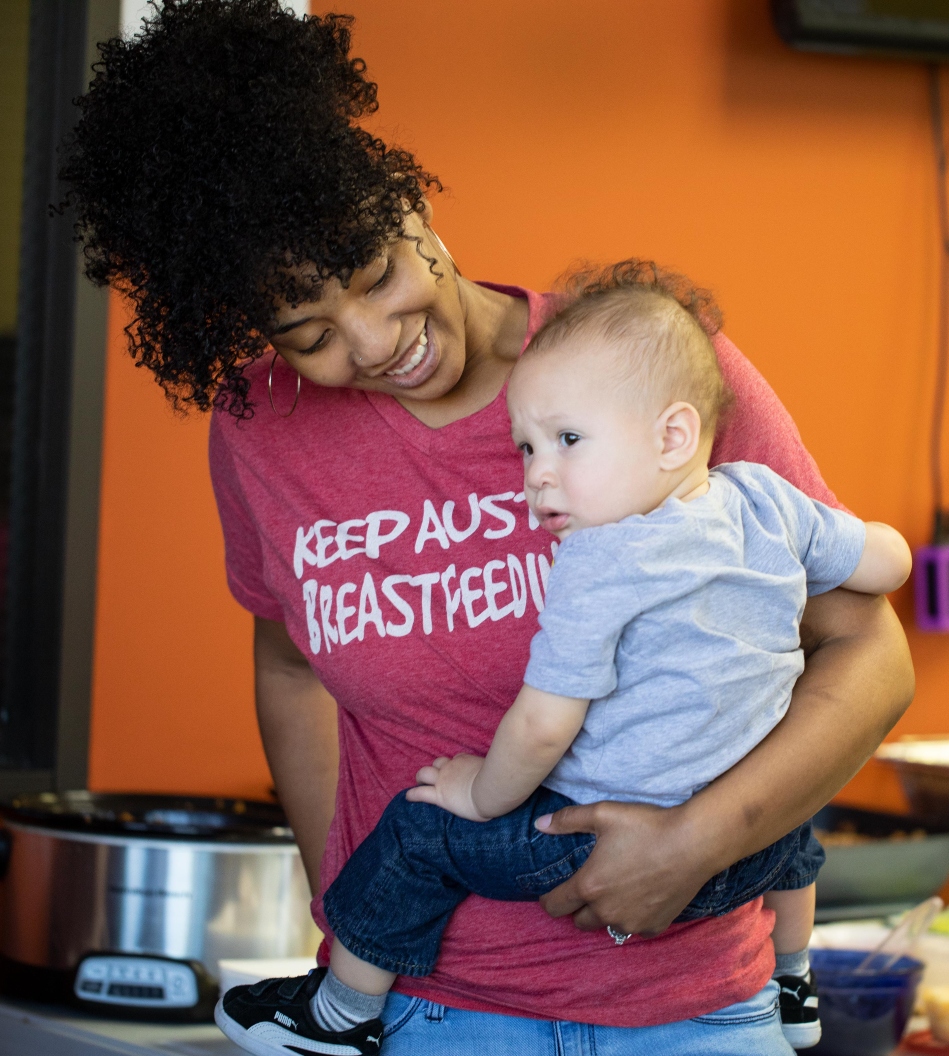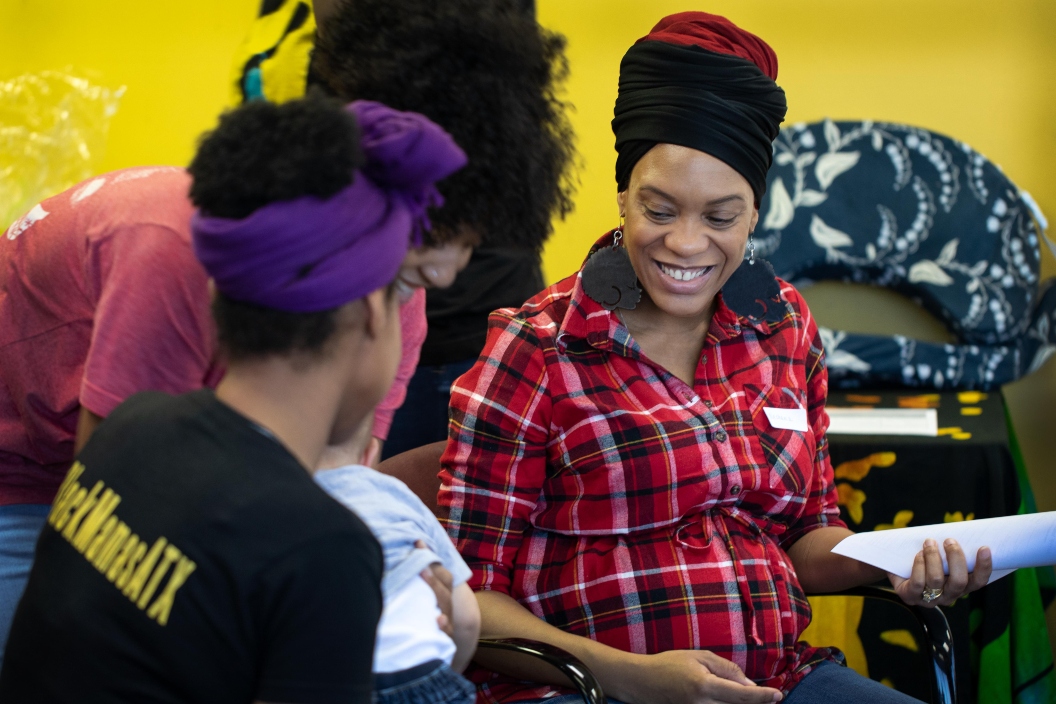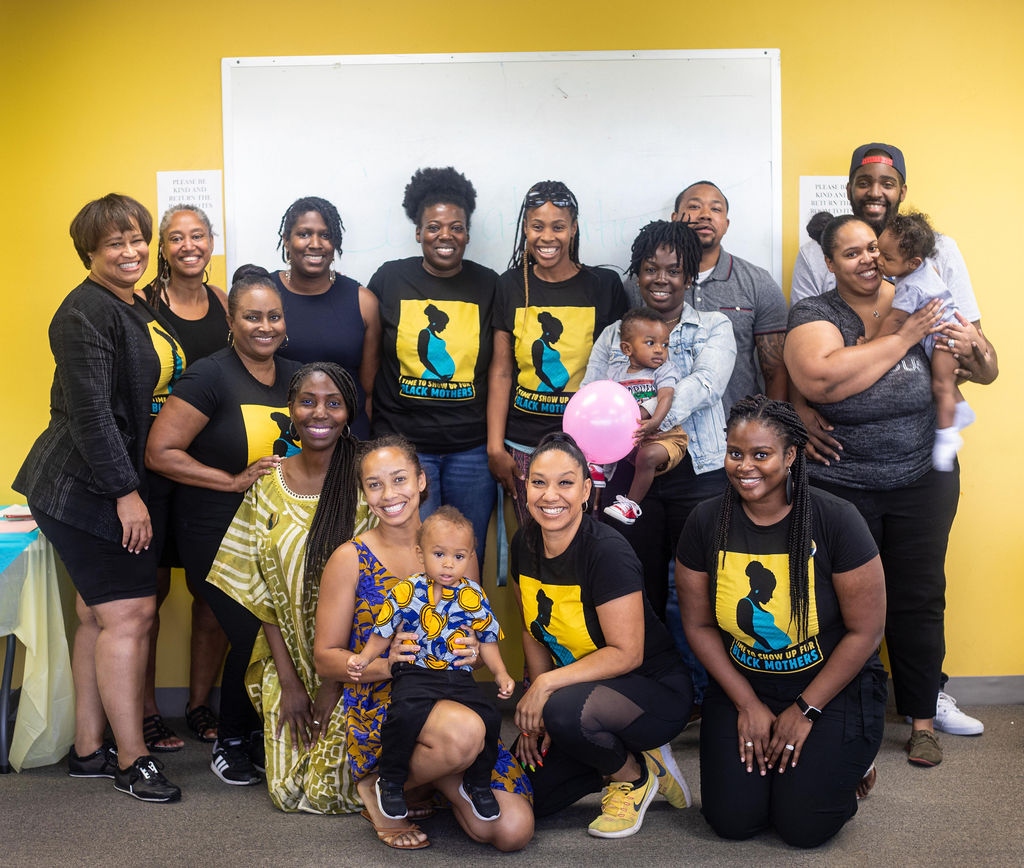Black Mamas ATX gives black mothers a chance to not just survive, but thrive on their motherhood journey.
By Aisling Ayers, Photos by Nakeenya Wilson
D’Ashtreia Butler rushed to the hospital when she felt her water break, ready to give birth to her second child. She says when she arrived, instead of examining her, a nurse stated her water hadn’t broken.
Butler says she was traumatized by the feeling of not being heard in such a high-stress medical environment. After recovering and returning home with her newborn son, she began researching statistics about other Black women’s medical experiences.
A 2019 report from Harvard Public Health states that Black women are three to four times more likely to die during or after delivery than white women.
“I want to make sure that I’m heard,” Butler says. “[I’m] not the only Black person that they don’t listen to; it’s a thing. They kill people.”
No More Trauma
Three years later, Butler was scheduled for induced labor with her third child. The day before going into the hospital, filled with anxiety, she messaged the organization Black Mamas ATX to request a doula. A woman trained to offer nonmedical prenatal and postnatal support.

The organization messaged her back the same night, and a doula joined her in her hospital room the next day.
“This time with me having the doula in there to help, [the hospital staff]was actually a bit more cognisant and just wanted to listen a little bit more,” Butler says. “I wasn’t as scared as I was before because I felt like there was someone there that had my best interests at heart.”
Black Mamas ATX provides Black mothers in Austin with free direct care, such as certified doula services, postpartum assistance and financial aid, without insurance requirements. The organization has served over 70 women across Austin in 2020.
“The Systems Haven’t Changed”
When Nakeenya Wilson gave birth to her second son, she said it was a nearly fatal delivery; “the perfect storm of all the things that shouldn’t happen.”
The experience led her to Black Mamas ATX, where she serves as the executive director. Often sitting at the bedsides of Black mothers with stories similar to her own.
“The data shows that irregardless of income, education, access to care, Black women are still more likely to die [during childbirth],” Wilson says. “Even though some would like us to believe that we are in a post-racial America, the systems haven’t changed.”
Black Mamas ATX began in 2018 after Michele Rountree received an 18-month grant from St. David’s Foundation to research Black maternal health disparities.
“Black women are oftentimes not heard and listened to [in the health care system],” Wilson says. “Their pain is downplayed, or there’s these false assumptions that Black women have higher thresholds of pain.”
Black Mamas Connected
With the newly granted funding, Rountree connected with other Black women, including Wilson. They all shared similar experiences and were motivated to address the problem and influence legislative policies.
“It was a cross section of Black women from different disciplines, education levels, socioeconomic levels, who came together to figure out how to tackle the issue of Black maternal health in the Central Texas area,” Wilson says.
Many women are led to the organization by word-of-mouth, some later taking on leadership and advocacy positions.
Current Board Secretary Robin Harris recalls her daughter’s traumatic delivery in 2015. She says she was scared about delivering her second child in March. But for the months leading up to her cesarean section and through the recovery afterwards, her doula was only a call or text away.

“She was there for the C-section in the operating room with me and my husband,” Harris says. “[After the birth] she did my laundry for me, brought me food. I had high blood pressure again, so she picked me up to take me…to the hospital at midnight.”
Black Mamas ATX & COVID-19
Wilson says that before the pandemic, mothers requested doulas for any stage in their pregnancy, assisting them in the hospital or in their homes for delivery.
Many doulas help mothers create a birthing plan to relieve anxiety, navigate breastfeeding or just offer emotional support. Now most doulas are working virtually through telehealth. Though they do offer in-person support during the birth as long as the mother has not tested positive for COVID-19.
Butler has been a client since she gave birth in January; when a doula arrived to support her at the hospital on a day’s notice. Later, when she developed postpartum depression, her doula encouraged her to get medication.
“I just don’t like taking medicine in general…and I think I can just muscle through it and I’ll be okay,” Butler says. “But in actuality, no, I need to get help and assistance.”
Helping Black Mamas Thrive
The organization also holds Sister Circles over Zoom, where mothers find community by discussing their shared experiences.
“All women are 1 in 7 in terms of the likelihood of them developing postpartum depression,” Wilson says. “Black women are 1 in 3. Then take COVID and lay that over. Then you take the current racial climate we’ve experienced and how things have kind of imploded in the last nine months; that’s a lot.”
Whether kneeling beside a mother’s bed to help them breastfeed or dropping off meals for families facing job loss, Rountree says Black Mamas ATX is empowering mothers every step of the way.

“My vision…is to ensure that Black women are thriving, that it’s just not a matter of them surviving, that they’re thriving,” Rountree says.
Find out more about Black Mamas ATX on their official website and on Facebook.

